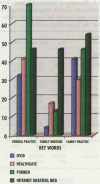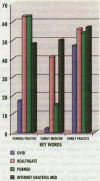Abstract
OBJECTIVE: To explain differences in the results of literature searches in British general practice and North American family practice or family medicine. DESIGN: Comparative literature search. SETTING: The Department of Family and Community Medicine at the University of Toronto in Ontario. METHOD: Literature searches on MEDLINE demonstrated that certain search strategies ignored certain key words, depending on the search engine and the search terms chosen. Literature searches using the key words "general practice," "family practice," and "family medicine" combined with the topics "depression" and then "otitis media" were conducted in MEDLINE using four different Web-based search engines: Ovid, HealthGate, PubMed, and Internet Grateful Med. MAIN OUTCOME MEASURES: The number of MEDLINE references retrieved for both topics when searched with each of the three key words, "general practice," "family practice," and "family medicine" using each of the four search engines. RESULTS: For each topic, each search yielded very different articles. Some search engines did a better job of matching the term "general practice" to the terms "family medicine" and "family practice," and thus improved retrieval. The problem of language use extends to the variable use of terminology and differences in spelling between British and American English. CONCLUSION: We need to heighten awareness of literature search problems and the potential for duplication of research effort when some of the literature is ignored, and to suggest ways to overcome the deficiencies of the various search engines.
Full text
PDF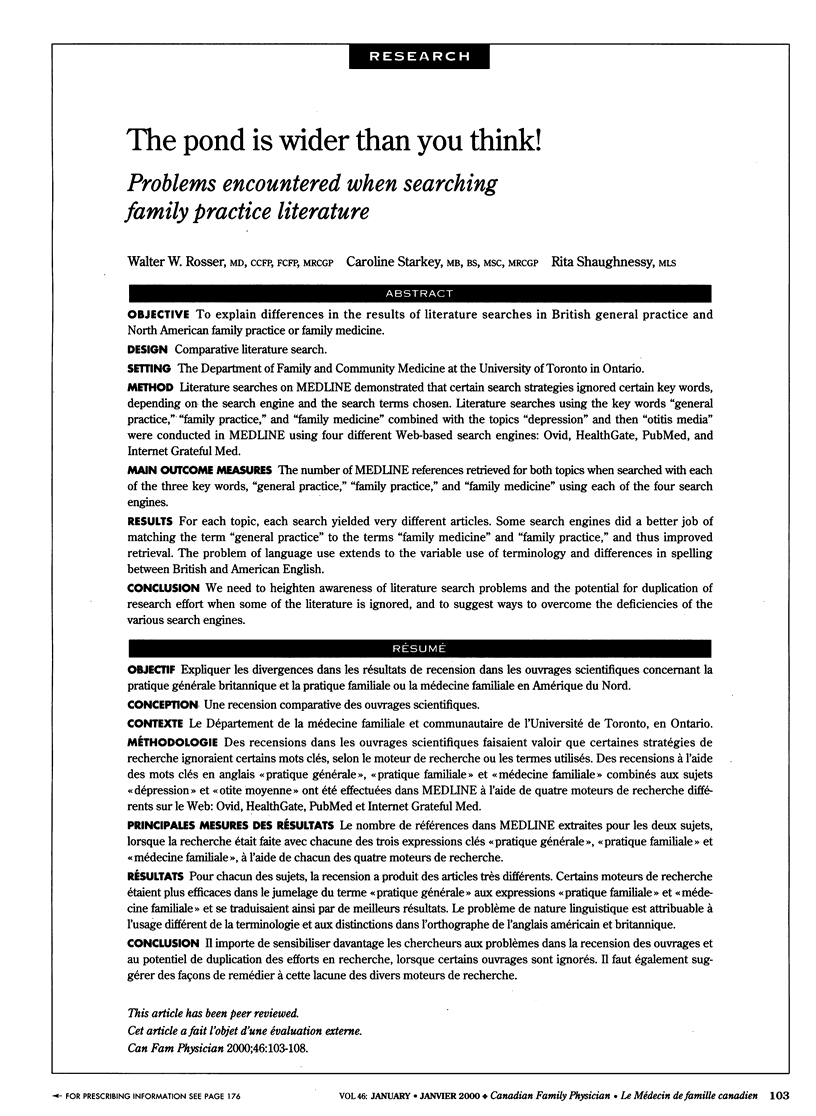
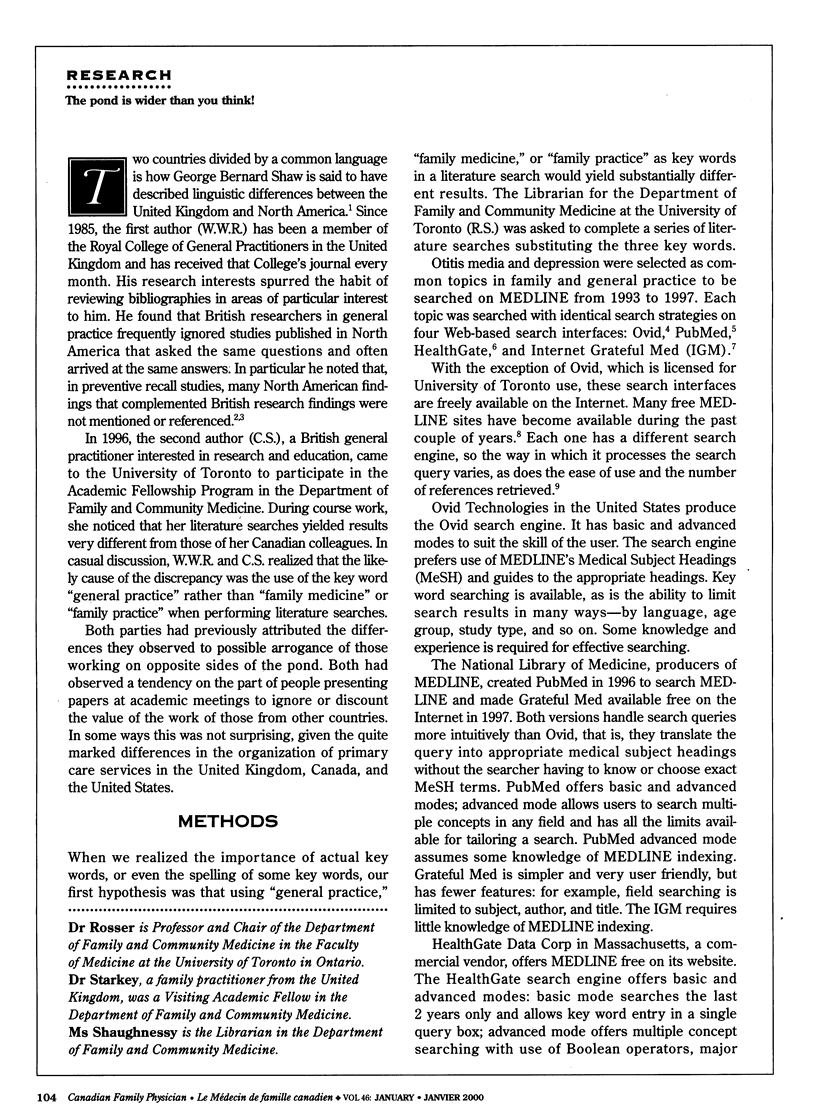
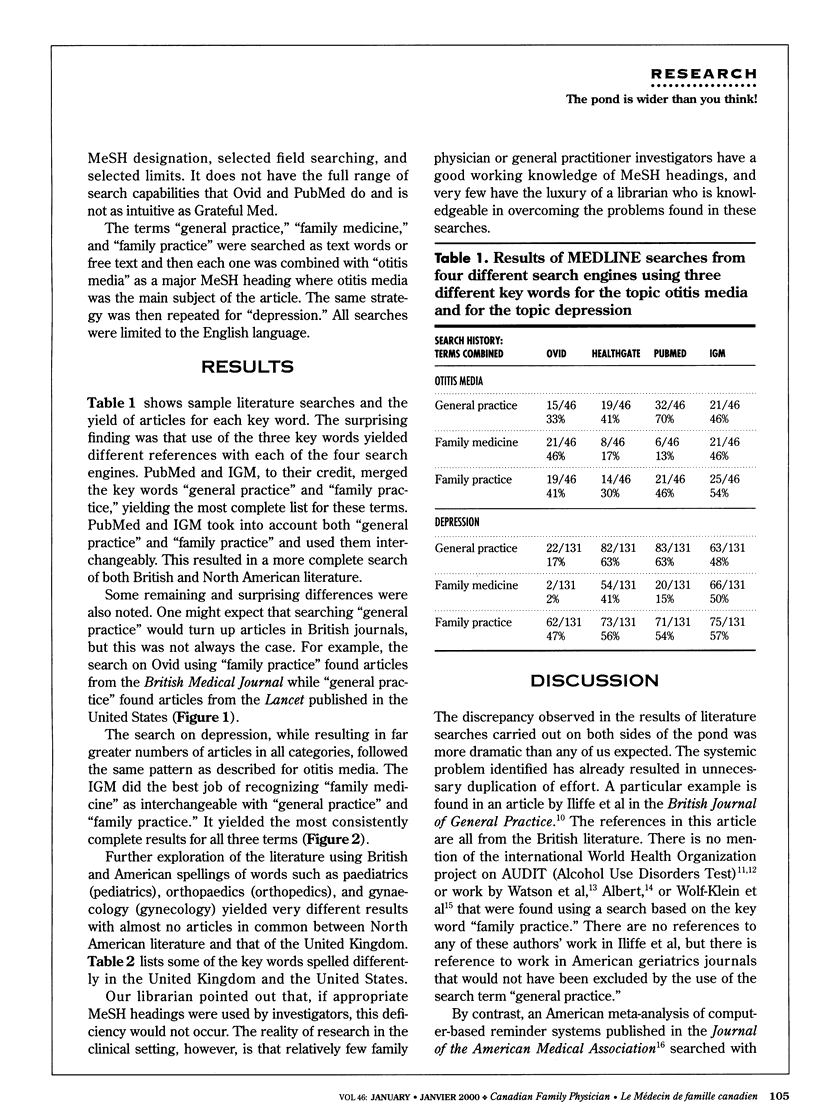
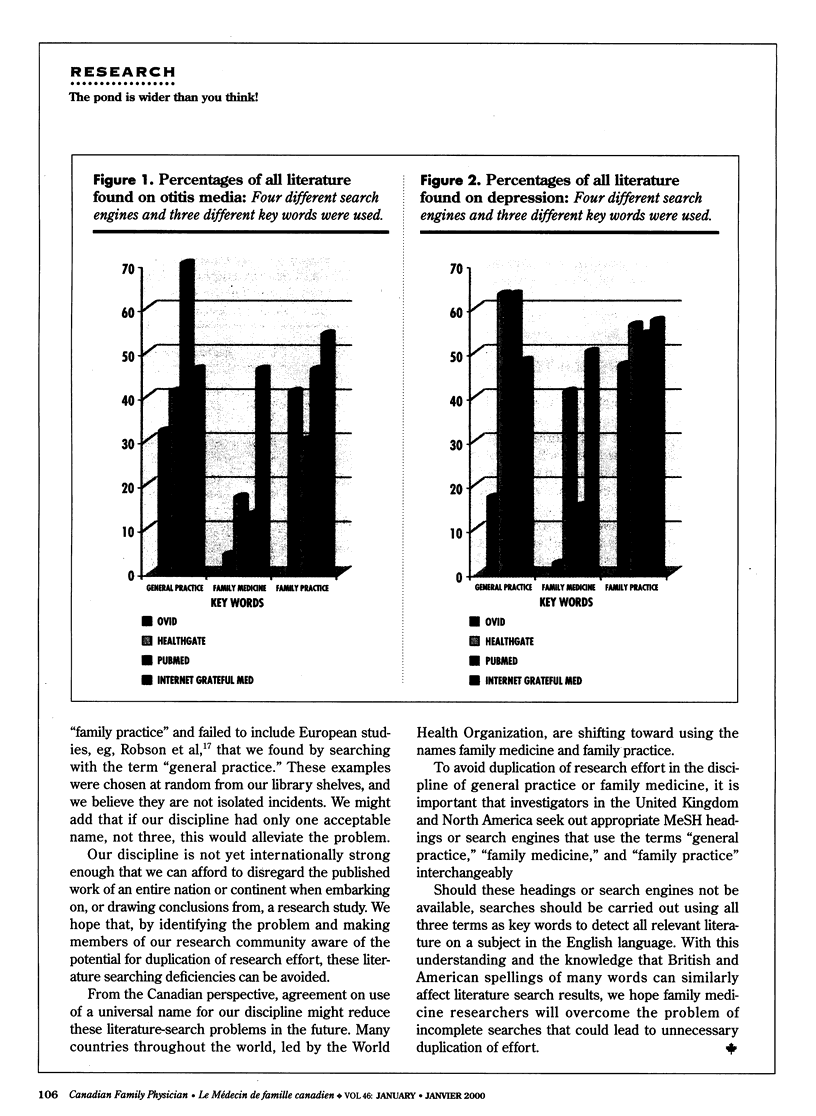

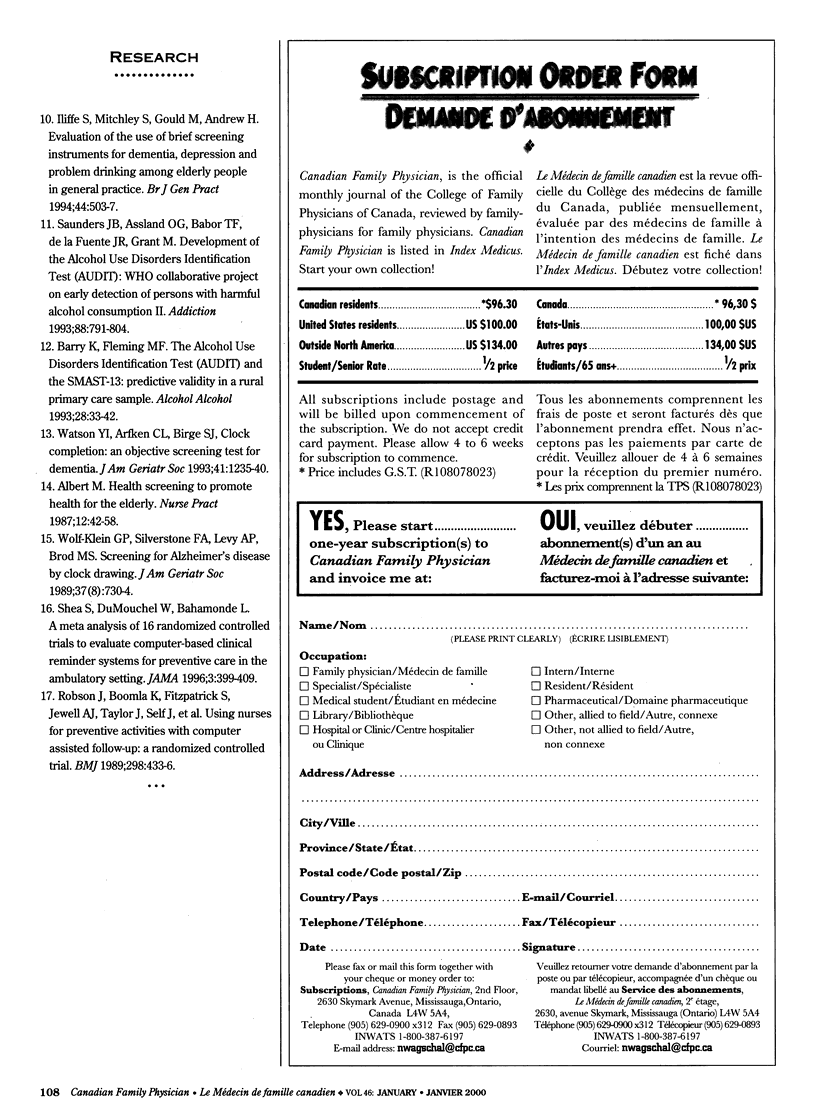
Images in this article
Selected References
These references are in PubMed. This may not be the complete list of references from this article.
- Albert M. Health screening to promote health for the elderly. Nurse Pract. 1987 May;12(5):42-4, 48-51, 54-8. [PubMed] [Google Scholar]
- Barry K. L., Fleming M. F. The Alcohol Use Disorders Identification Test (AUDIT) and the SMAST-13: predictive validity in a rural primary care sample. Alcohol Alcohol. 1993 Jan;28(1):33–42. [PubMed] [Google Scholar]
- Hogg W. E., Bass M., Calonge N., Crouch H., Satenstein G. Randomized controlled study of customized preventive medicine reminder letters in a community practice. Can Fam Physician. 1998 Jan;44:81–88. [PMC free article] [PubMed] [Google Scholar]
- Iliffe S., Mitchley S., Gould M., Haines A. Evaluation of the use of brief screening instruments for dementia, depression and problem drinking among elderly people in general practice. Br J Gen Pract. 1994 Nov;44(388):503–507. [PMC free article] [PubMed] [Google Scholar]
- Palm B. T., Kant A. C., van den Bosch W. J., Vooijs G. P., van Weel C. Preliminary results of a general practice based call system for cervical cancer screening in The Netherlands. Br J Gen Pract. 1993 Dec;43(377):503–506. [PMC free article] [PubMed] [Google Scholar]
- Robson J., Boomla K., Fitzpatrick S., Jewell A. J., Taylor J., Self J., Colyer M. Using nurses for preventive activities with computer assisted follow up: a randomised controlled trial. BMJ. 1989 Feb 18;298(6671):433–436. doi: 10.1136/bmj.298.6671.433. [DOI] [PMC free article] [PubMed] [Google Scholar]
- Saunders J. B., Aasland O. G., Babor T. F., de la Fuente J. R., Grant M. Development of the Alcohol Use Disorders Identification Test (AUDIT): WHO Collaborative Project on Early Detection of Persons with Harmful Alcohol Consumption--II. Addiction. 1993 Jun;88(6):791–804. doi: 10.1111/j.1360-0443.1993.tb02093.x. [DOI] [PubMed] [Google Scholar]
- Shea S., DuMouchel W., Bahamonde L. A meta-analysis of 16 randomized controlled trials to evaluate computer-based clinical reminder systems for preventive care in the ambulatory setting. J Am Med Inform Assoc. 1996 Nov-Dec;3(6):399–409. doi: 10.1136/jamia.1996.97084513. [DOI] [PMC free article] [PubMed] [Google Scholar]
- Watson Y. I., Arfken C. L., Birge S. J. Clock completion: an objective screening test for dementia. J Am Geriatr Soc. 1993 Nov;41(11):1235–1240. doi: 10.1111/j.1532-5415.1993.tb07308.x. [DOI] [PubMed] [Google Scholar]
- Wolf-Klein G. P., Silverstone F. A., Levy A. P., Brod M. S. Screening for Alzheimer's disease by clock drawing. J Am Geriatr Soc. 1989 Aug;37(8):730–734. doi: 10.1111/j.1532-5415.1989.tb02234.x. [DOI] [PubMed] [Google Scholar]



